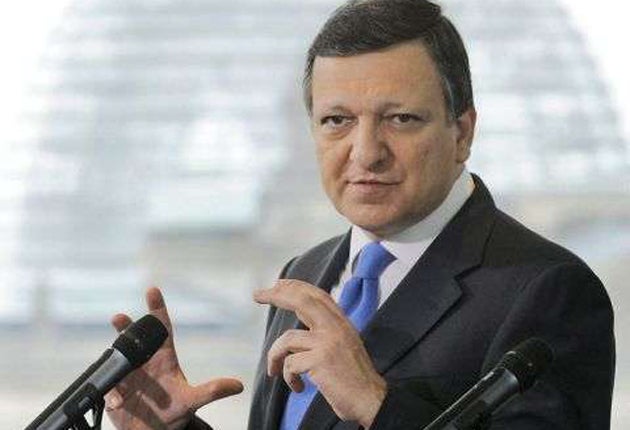World Focus: A second term for Barroso is hardly a sign of approval
European Union

Your support helps us to tell the story
From reproductive rights to climate change to Big Tech, The Independent is on the ground when the story is developing. Whether it's investigating the financials of Elon Musk's pro-Trump PAC or producing our latest documentary, 'The A Word', which shines a light on the American women fighting for reproductive rights, we know how important it is to parse out the facts from the messaging.
At such a critical moment in US history, we need reporters on the ground. Your donation allows us to keep sending journalists to speak to both sides of the story.
The Independent is trusted by Americans across the entire political spectrum. And unlike many other quality news outlets, we choose not to lock Americans out of our reporting and analysis with paywalls. We believe quality journalism should be available to everyone, paid for by those who can afford it.
Your support makes all the difference.Jose Manuel Barroso is almost certain to clinch a second term as European Commission president when EU leaders meet in Brussels today – thanks largely to the absence of a strong challenger.
The green light for the conservative former Portuguese prime minister comes despite the fact he has been described as "mediocre and weak", despite the heavy flak he took for his handling of the financial crisis and despite the doubts raised recently by France and Germany over his re-appointment.
Mr Barroso was not even in the running for the job in 2004. It was only because the British vetoed the front-runner, Belgian Prime Minister Guy Verhofstadt (largely for his opposition to the Iraq war), that Mr Barroso entered the race.
And today, there is still a dearth of charismatic alternatives on the European stage. The best politicians prefer a national career, seen as conferring greater influence than the top job in Brussels.
The Greens – led by the May '68 hero Daniel Cohn-Bendit and buoyed by their success in the European elections – have teamed up with the Socialists and vowed to veto Mr Barroso next month, when the European Parliament has to give its formal backing to his appointment. "The point is that there are good personalities around but they will only emerge after we have blocked Barroso," says Mr Cohn-Bendit.
But according to diplomats, the blocking attempt is likely to fail; those unhappy about Mr Barroso's re-appointment have been won over as part of the complex horse-trading for key jobs in the EU.
So Mr Barroso will be in the driving seat when it comes to drawing up laws for the EU's 500 million citizens, commanding an operating budget next year of €138bn (£117bn). Although he has been credited with pushing through an ambitious EU programme to fight climate change and for being a better communicator than his predecessors, Mr Barroso can boast few other strings to his bow.
His supporters say he braved unprecedented storms – the Dutch and French "No" votes to the European Constitution in 2005 and then the Irish "No" vote last year for its replacement, the Lisbon Treaty.
Many hope Mr Barroso will be braver during his second mandate. "Perhaps he'll at last find the courage to stand up to bickering governments," said one diplomat.
Just a few metres down the road from the curved steel and glass Commission headquarters, shoppers were yesterday blissfully unaware of the tense game that was being played out inside.
"Who is that?" asked one young couple as they looked at Mr Barroso's picture. Yet not one of them was able to think of a better replacement. "Someone like President Obama?" they suggested in unison.
Join our commenting forum
Join thought-provoking conversations, follow other Independent readers and see their replies
Comments